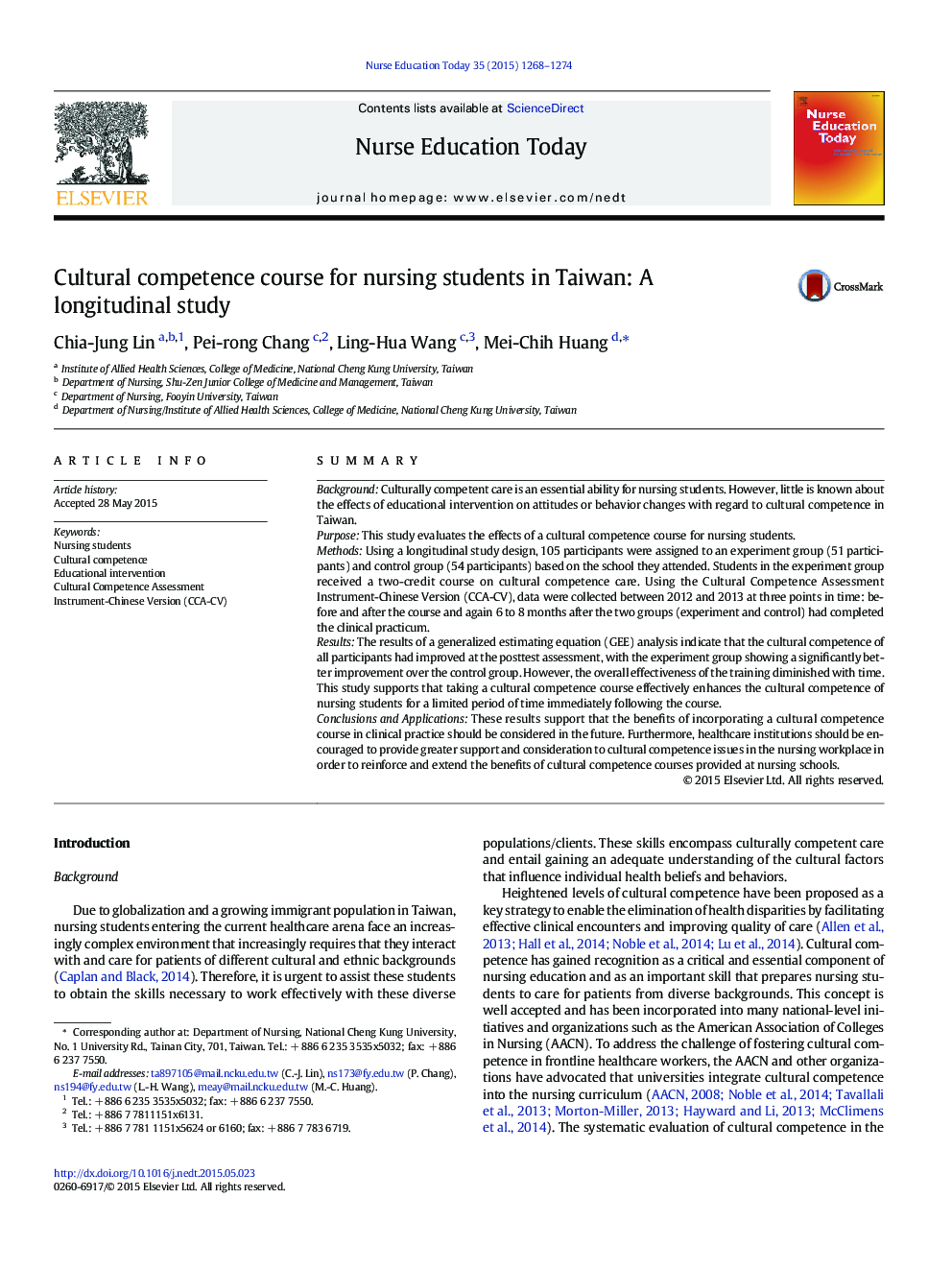| Article ID | Journal | Published Year | Pages | File Type |
|---|---|---|---|---|
| 367949 | Nurse Education Today | 2015 | 7 Pages |
•Developing a course to reduce personal discomfort with cultural diversity is a critical task for nursing care.•The education program should be evaluated longitudinally in order to measure the positive changes.•The clinical practice should be encouraged to provide greater support, consideration to cultural competence issues.
SummaryBackgroundCulturally competent care is an essential ability for nursing students. However, little is known about the effects of educational intervention on attitudes or behavior changes with regard to cultural competence in Taiwan.PurposeThis study evaluates the effects of a cultural competence course for nursing students.MethodsUsing a longitudinal study design, 105 participants were assigned to an experiment group (51 participants) and control group (54 participants) based on the school they attended. Students in the experiment group received a two-credit course on cultural competence care. Using the Cultural Competence Assessment Instrument-Chinese Version (CCA-CV), data were collected between 2012 and 2013 at three points in time: before and after the course and again 6 to 8 months after the two groups (experiment and control) had completed the clinical practicum.ResultsThe results of a generalized estimating equation (GEE) analysis indicate that the cultural competence of all participants had improved at the posttest assessment, with the experiment group showing a significantly better improvement over the control group. However, the overall effectiveness of the training diminished with time. This study supports that taking a cultural competence course effectively enhances the cultural competence of nursing students for a limited period of time immediately following the course.Conclusions and ApplicationsThese results support that the benefits of incorporating a cultural competence course in clinical practice should be considered in the future. Furthermore, healthcare institutions should be encouraged to provide greater support and consideration to cultural competence issues in the nursing workplace in order to reinforce and extend the benefits of cultural competence courses provided at nursing schools.
